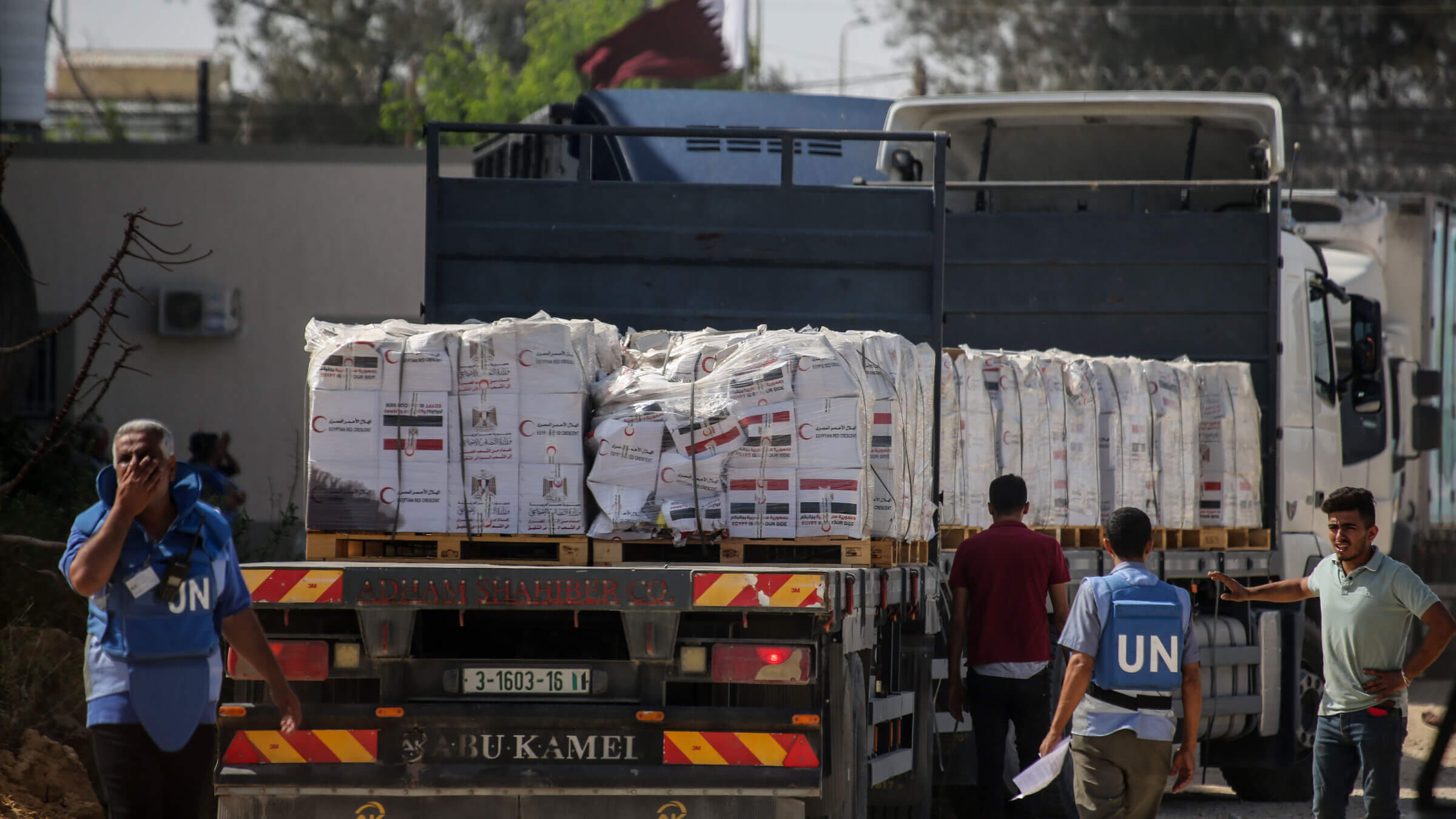Aid convoys enter Gaza as Palestinian health ministry says death toll there tops 4,000
European and Arab leaders meet in Cairo morning after first two of 200-plus hostages released

The entry of humanitarian aid arrives through the Rafah land crossing into the Gaza Strip on October 21, 2023 in Rafah, Gaza. Photo by Ahmad Hasaballah/Getty Images
Twenty trucks of food, water and medical supplies entered the Gaza Strip through the Rafah crossing from Egypt Saturday morning after days of delay. United Nations officials said the trucks included “life-saving supplies” but no fuel at this point, according to an agreement with Israel.
“The people of Gaza need a commitment for much, much more,” U.N. Secretary General António Guterres said in a speech in Cairo. “A continuous delivery of aid to Gaza at the scale that is needed.”
The convoy moved into Gaza the morning after Hamas released two of the suspected 200-plus hostages being held by Palestinian groups since their Oct. 7 terror attack on Israel that killed more than 1,400. The released hostages, a mother and daughter from Chicago who were visiting Israel, spoke Friday night to President Joe Biden.
The Palestinian Health Ministry said Saturday that Israeli airstrikes had killed 4,385 people since the war began, and that seven of its local hospitals had ceased to function. The U.N. said 17 of its local workers were among the dead. Other Gaza officials said 20 sewage treatment and water desalination plants were out of fuel and not working, threatening to deepen the humanitarian crisis.
Arab and European leaders, meanwhile, were meeting for a peace summit in Cairo. “We won’t leave, we will remain on our land,” President Mahmoud Abbas of the Palestinian Authority said in his speech.
King Abdullah II of Jordan called Israel’s bombing in Gaza a “war crime” and a “collective punishment of a besieged and helpless people,” saying the world’s reaction was sending a message that “Palestinian lives matter less than Israeli ones. Our lives matter less than other lives.”
Leaders from Italy, Spain, Greece and Spain also called for more civilian protections and humanitarian aid to Gaza but condemned the Hamas attack and said Israel has a right to defend itself.
Meanwhile in Israel, the military once again raised the number of suspected hostages, to 210 from 203. The IDF said the that Hezbollah continued to fire rockets from Lebanon at Mount Dov, and that Israel was responding with artillery fire. There were also rockets fired from Gaza into souther Israel on Saturday.
Yair Lapid, the opposition leader, criticized the government’s wartime leadership on social media.
“Now more than ever, a true emergency government is needed with a single limited cabinet that has clear authorities,” he wrote on X, formerly Twitter. “Everyone should know what they are doing in this cabinet, what their role is, what their authorities are and what the administrative and command order are. Without this, the government only deepens the chaos.”














